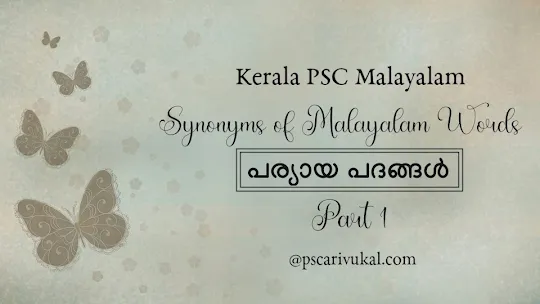The Nobel Prize is considered the most prestigious award in the world given for outstanding contributions in the fields of physics, chemistry, literature, peace, physiology/medicine, and economics.
It was established in 1895 under the will of a Swedish scientist who became famous for the invention of dynamite, Alfred Nobel.
From Rabindranath Tagore in 1913 to Kailash Satyarthi in 2014 so far there are 5 Indian Citizens who have made the country feel proud since its inception in 1901.
Basic Facts
- Total No. of Nobel Prize Winners from India – 6.
- First Nobel Prize Winner – Rabindranath Tagore (1913).
- First Nobel Prize in Physics – C. V. Raman (1930).
- First Indian Scientist to get Nobel Prize – C. V. Raman (1930).
- First Nobel Peace Prize – Mother Theresa (1979, Albanian Origin).
- First Nobel Prize in Economics – Amartya Sen (1998).
- First Person of Indian origin to receive Nobel Peace Prize – Kailash Satyarthi (2014).
the Indian connection
- First Person of Indian origin to receive Nobel Prize in Medicine – Dr. Har Govind Khurana* (1968, USA, Jointly with Robert W. Holley & Marshall W. Nirenberg).
- First Person of Indian origin to receive Nobel Prize in Physics – S. Chandrasekhar** (1983, USA).
- First Person of Indian origin to receive Nobel Prize in Chemistry – Venkatraman Ramakrishnan*** (2009, UK-USA, Jointly with Thomas A. Steitz & Ada E. Yonath).
- First Person of Indian descent to win Nobel Prize in Literature – V.S. Naipaul (2001, UK Citizen, born in Trinidad).
- Second Person of Indian descends to win Nobel Prize in Economics – Abhijit Banerjee (2019, USA, Jointly with Esther Duflo & Michael Kremer; for their experimental approach to alleviating global poverty.).
*For their interpretation of the genetic code and its function in protein synthesis.
**For his theoretical studies of the physical processes of importance to the structure and evolution of the stars.
*** For studies of the structure and function of the ribosome.
the Indian born Nobel laureates
- Ronald Ross – Physiology/Medicine (United Kingdom, 1902).
- Rudyard Kipling – Literature (United Kingdom, 1907).
- Tenzing Gyatso (14th Dalai Lama) – Peace (Tibet, 2000).
IPCC and Former US Vice-president Al Gore jointly shared the Nobel Peace Prize in 2002 for international action against global warming and climate change.
the Indian Nobel laureates
1. Rabindranath Tagore (1913)
- Popularly known as Gurudev & Bard of Bengal.
- Nobel Prize in Literature in 1913 for ‘Gitanjali’.
- "because of his profoundly sensitive, fresh and beautiful verse, by which, with consummate skill, he has made his poetic thought, expressed in his own English words, a part of the literature of the West."
- First Asian to win the Nobel Prize.
- Knighthood in 1915 by King George V. (renowned after Jallianwala Bagh Massacre, 1919).
- Established the Vishwa-Bharati University in 1921.
- Wrote National Anthem of 2 Countries: India & Bangladesh.
2. C. V. Raman (1930)
- Chandrasekhara Venkata Raman.
- First Asian Scientist to win Nobel Prize.
- First non-White to receive a Nobel Prize.
- Recognized for his work on the scattering of light (Raman Effect).
- Raman Effect laid the foundation of Raman Spectroscopy, a powerful tool which provides insights into the molecular composition and dynamics of substances.
- First Indian Director of Indian Institute of Sciences (IISC) in 1933.
- Bharat Ratna award in 1954, one of the first recipients.
- National Science Day – February 28, marks the discovery of the Raman Effect on Feb 28, 1928.
3. Mother Teresa (1910 - 1997)
- Popularly Known as Saint of the Gutters.
- Original Name – Agnes Gonxha Bojaxhiu.
- Born in Albania.
- Founder the Order of the Missionaries of Charity, a Roman Catholic congregation of women in 1950.
- Nobel Prize for Peace in 1979.
- for her work for bringing help to suffering humanity.
- Bharat Ratna – January 25, 1980.
- Ramon Magsaysay Peace Prize in 1962.
- canonized as Saint Teresa of Calcutta in 2016 by Pope Francis Benedict.
4. Dr. Amartya Sen
- For his contributions to Welfare Economics and Poverty.
- Bharat Ratna in 1999.
- Honorary Citizen of Bangladesh since 1999.
- National Humanities Medal (USA) in 2012.
5. Kailash Satyarthi
- Received Nobel Prize in 2014.
- Jointly with Malala Yousafzai of Pakistan.
- "for their struggle against the suppression of children and young people and for the right of all children to education."
- Founder of Bachpan Bachao Andolan (1980).
- Established GoodWeave International (formerly known as Rugmark).
- For his struggle against the suppression of children and young people and for the right of all children to education.
📝 SideNotes:
- Raman Effect – Scattering of light particles ie., changes in the wavelength of light when it enters a molecule causing electromagnetic fields in the molecule.
- The Nobel Prize for Economics was instituted by – Sweden's Central Bank.
- Nobel Peace Prize is awarded in the City of – Oslo, Norway.
- First Director of Indian Institute of Sciences (IISC) – J.R.D. Tata.
- Pakistan's First Nobel Prize Winner – Abdus Salam (Physics, 1979).
- The first scientist from an Islamic country to receive a Nobel Prize – Abdus Salam (Physics, 1979).
- The Second Nobel Prize Winner from Pakistan – Malala Yousafzai
- The youngest Nobel Prize laureate in the history – Malala Yousafzai (17 years old).
Thanks for reading!!!









Post a Comment
Post a Comment